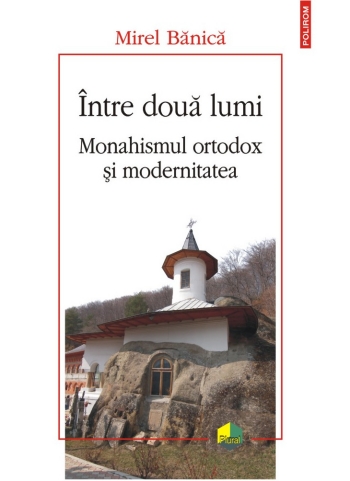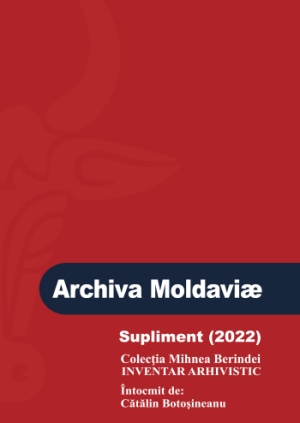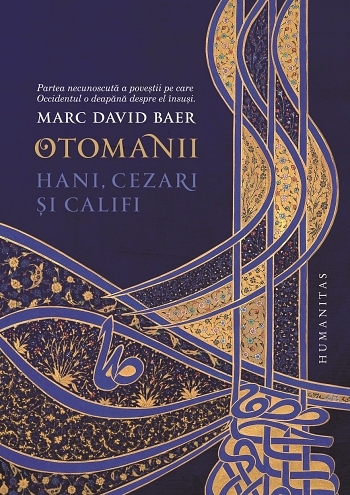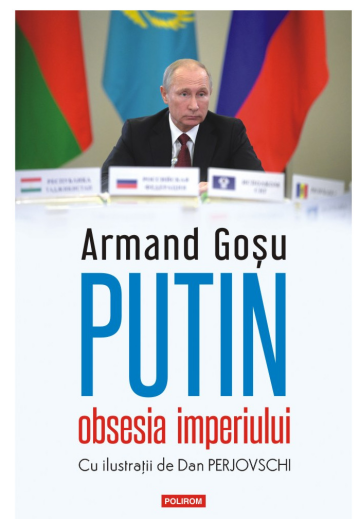Recent articles published by The New York Times and Newsweek have suggested that the anti-corruption fight in Romania has gone too far. Setting aside the question of why two major American news outfits would run back-to-back articles complaining about the efforts of a semi-consolidated democracy to clean up its corruption-plagued government, the articles deserve a response from those who know and understand the situation on the ground in Romania.
First, the argument. The authors, Luke Dale-Harris of Newsweek and Patrick Basham of the Democracy Institute, writing as an op-ed contributor at The New York Times, claim that Romania’s anti-corruption efforts are doing more harm than good in the country. The authors make four broad claims: (1) that the mechanisms of anti-corruption lend themselves to political abuse; (2) that anti-corruption efforts have gotten out of control; (3) that anti-corruption efforts are hurting the economy; and (4) that anti-corruption campaigns fuel anti-American sentiment.
Let’s deal with each argument in turn. First, it’s important to understand that any public institution, in any country, can lend itself to political abuse—even in the United States. But the history of Romanian anti-corruption institutions does not support the authors’ claims that they are primarily tools of political vindictiveness. The Romanian anti-corruption agency, Directia Nationala Anticoruptie (DNA), has a history not of targeting individuals on political grounds but of operating across the spectrum, scrutinizing figures from all parties. As a recent report by the Center for European Policy Analysis detailed, DNA has made significant gains in recent years in revealing and dismantling corrupt networks spanning the realms of politics, business, the civil service and even magistrates—to the applause of the majority of Romanians.
Second, the claim that anti-corruption efforts are out of control mimics what some Romanian politicians themselves claim about DNA. This assertion conflicts with the previous argument: it can’t be both true that anti-corruption efforts are being employed for sinister political reasons and that they are veering wildly off the tracks. It is important to remember that that the fight against corruption is a recent phenomenon in Romania. The DNA has existed for only about a decade, during which time investigators have had to build the evidence for cases. Romania’s independent judiciary also balances the power of prosecutors, since judges ultimately decide the outcome of corruption cases. What seems like a frenzy from the outside is actually the result of many years of work, under pressure and scrutiny from the United States and the European Union (EU). Clearly, the Romanian people do not see the DNA’s work as a purposeless frenzy; 63 percent have confidence in the institution’s efforts.
Third, the idea that fighting corruption hurts the Romanian economy is baseless. In fact, the opposite is true. There is a strong correlation between the success of anti-corruption efforts in post-communist societies and economic prosperity and growth.[1] Look at Poland. Or Estonia. In Romania’s case, there are opportunity costs to frightening away investors with corrupt business practices, as well as the direct costs of corruption itself: billions of dollars wasted on the mismanagement of public funds that could have gone to creating jobs, building infrastructure and building schools.
Fourth, the argument that fighting corruption turns Romanians against America is, on its face, bizarre. Today, Romania is one of the most pro-American countries in Europe. Romanian civil society is a close partner to the U.S. Embassy, and activists and politicians frequently call for more rather than less attention and pressure from the United States. Moreover, a significant degree of pressure for anti-corruption efforts comes from the EU, which has in Romania one of the highest approval ratings in Central Europe. Clearly, Romanians value the role that these two outside entities play in pressing the country’s leaders to clean up the system and strengthen democracy.
One common feature of the two articles was a lack of evidence to support the arguments against Romanian anti-corruption efforts. No sources were offered, no data, no figures, no comments from officials—only vague references to the views of unnamed “officials.” Neither author explained how they had come to form these (rather unorthodox) impressions. They simply asserted that anti-corruption is bad for Romania because it is widespread and zealous.
Rather than criticize Romania’s fledgling anti-corruption institutions, The New York Times and Newsweek should devote an effort to examining the very real costs and harm that corruption causes in Romanian society. If investigative journalists in the West want to turn their attention to this long-neglected subject, they might begin by asking questions such as: Where are the estimated 70 billion euros that have been stolen from the Romanian government since 1990?[2] Why has the current government failed to collect the 1 billion euros in final judgments ordered by courts (especially since the courts have seized collateral to satisfy these judgments)? Why did Romanian politicians try to grant themselves amnesty for crimes committed in office? Why is the Romanian Parliament trying to eliminate direct elections and return to closed party lists? Why does the Romanian government bypass the Parliament and legislate by hundreds of Emergency Ordinances – many of dubious constitutionality – each year? Why does the DNA have a higher public approval rating than the government, the presidency and all of Parliament?
In asking harder questions about the extent of corruption in Romania, Western journalists and analysts should understand that corruption in the country diverts money away from healthcare and education and into politicians’ pockets. Corrupt systems frighten away many times as much investment as they attract.[3] Across the world, corruption breeds fear, threatens lives and destroys hope. Underestimating the depth and consequences of systemic political corruption could become a major blind spot for U.S. foreign policy, including in Central Europe.
It is difficult for Americans to imagine themselves in Romanians’ shoes, or in the shoes of those in any country with deep-rooted systemic corruption. As an analogy, imagine that your children attended schools where teachers are appointed based on political patronage and are obligated to give their political party bosses a portion of what they steal from the schools. Imagine that these teachers have no skill or interest in education. Then imagine that the government is required by international institutions to initiate an anti-corruption effort, which starts convicting the teachers for theft and putting them in jail. Imagine that the political bosses intervene to allow the teachers to keep what they stole (against court judgments) and coerce the media to say, in effect, “Stop the anti-corruption work so our teachers can teach.”
Your reaction would probably be, “Hell no, the teachers don’t even know how to teach. Throw them in jail and get us our tax money they have stolen. We need real teachers and the money to rebuild our education system.” If you substitute Romanian parliamentarians for teachers in this analogy, you begin to identify with the hole Romanian citizens are trying to climb out of.
Articles like those by Dale-Harris and Basham do not help. Indeed, they do a disservice to the Romanian people, who have labored for years to free themselves from the legacy of an extractive political system. Such arguments impede those efforts and ultimately abet Vladimir Putin’s strategy of “feeding the stray dogs” (Russian code for bribing Romanian politicians).
Romania is one the few bright stories in the world today. It is remarkable that a culture so beaten down by corrupt leaders would have the courage to demonstrate how systemic corruption can be beaten. American media should cheer and encourage this process rather than present unfounded, poorly sourced and inadequately researched arguments against it.
[1] See for example, “The Rationale for Fighting Corruption,” Background Brief, OECD,http://www.oecd.org/cleangovbiz/49693613.pdf.
[2] “Romania Stolen,” Digi24, March 3, 2015,http://www.digi24.ro/Stiri/Digi24/Special/Romania+furata/Bilant+ROMANIA+FURATA+Statul+pagubit+cu+peste+70+de+miliarde+de+.
[3] For a discussion on the economic costs of corruption, see for example,http://archive.transparency.org/news_room/faq/journalists_faq#four.






 Aikido cu mintea si corpul coordonate. Invatati cum sa va relaxati si cum sa va pastrati calmul in conditii de stress.
Aikido cu mintea si corpul coordonate. Invatati cum sa va relaxati si cum sa va pastrati calmul in conditii de stress. 
Hear, hear!
Hello Don,
Thank you for writing this article. I completely agree with your points.
I’m afraid that in the case of both the New York Times and the Newsweek articles the authors were simply paid by those who will be affected by the anticorruption efforts.
Regards,
Laur
NY Times este citit numai de comunistii in stadiu de senilitate. Hillary Clinton ii face donatii s-o suporte in campania sa prezidentiala. Nu m-ar mira guvernul ponta sa fi facut acelasi lucru. Nu va asteptati la o explicatie profunda
Eventually a voice who does the reality in its frame.
Indeed, the article is describing accurately what is happening in the Romania of the last years.
The society is divided between pro- and anti- corruption. Who is pro-corruption? Generally speaking, the old generations are strongly in favor of steeling and influence peddling, as this was a strong surviving conditions in the former communist era. Also in favor of corruption are the majority of budgetary employees, many of them being relatives in an old mafia-like system of administration, the local one or the central one.
The anti-corruption success is a miracle in such a backward country. Of course there are explanations, but the evolution is unbelievable. This is exactly why mafia and mafia lovers are so angry and noisy. The independence of justice is under the siege of the majority of politicians. The public opinions vigilance has stopped several crafty attempts of the Romanian Parliament (even during the nights!!!) to change by low the independence of the justice.
Finally, we should recognize that all the romanian efforts towards modern justice, by themselves, were too low comparing with the corruption forces, distributed in the entire society. The help and influence of SUA and EU were absolutely remarkable. This is why, the article from „The New York Times” (in March) and „Newsweek” (in May) seems to be not some innocent opinions. The pro-corruptions forces from Romania ordered many times in the past some article in the foreign press. I’m pretty much sure that these two article were paid by the Romanian mafia.
sint platite domnule de pulime; unii ca vor,altii ca habar n au si ultimii ca trebe ca de aia is mindri primii
..“The New York Times” (in March) and “Newsweek” (in May) seems to be not some innocent opinions,,
That’s exactly right. And not only about politics. It is enough to send a fat check and the article you wanted published – just about anything – and it’s a done deal.
PSD it is so corrupt that such a move – have a dedicated article published by mainstream media – may be understood as a completely legitimate one.
IMHO the author of this article has done a great job pointing to the right direction and I welcome his effort of supporting DNA as they need friends now more than ever.
It is so important the american media to get this right and be on the right side of the story not on the manufactured one.
remarcabil articol ! raspunsurile la intrebarile „”Why…” sint cred fundamentale ptr a intelege ce se petrece in romanica
io nu am nici un dubiu, despre cine se afla la originea articolelor americane
Maybe you should look deeper into the Judicial system and compare it with the USA basic principles at least. And you will discover the total lack of accountability of the Romanian magistrates, as opposed to US where they are elected (70-80/.) or appointed by the President and approved than by the US Senate , which can also dismiss any magistrates for bad behaviour. In Romania the total lack of accountability leads to millions of euros to be paid by tax-payers following CEDO ruling on human rights violations by the Romanian Justice; no magistrate has been forced to pay anything, as opposed to ordinary citizens. And this came together with enormous privileges of the magistrates: Incomes on average 6 times higher than the Romanian average income, special pensions after only 25 years of work, immunity decided by CSM, etc. Therefore maybe you should do what you preach: devote some effort to understand the real situation.
Can you mention trustfully links? Because your claims about CEDO and romanian magistrates are completely false.
Most of the CEDO complains are not even taken into considerations. And most of the successfully ones are about the detentions conditions, which are really horrible in Romania. But this is really an issue of the Romanian government, not for the justice system.
As far as „enormous privileges of the magistrates”, this is an enormous exaggeration. Because most of the Romanian citizen, as it is mentioned in the article, feel confidence in institutions and magistrates. Still, the society is strongly divided between pro-and anti-corruption. Why did you forgot to mention that?! Your memory is innocent as “The New York Times” and “Newsweek” articles.
I will try to be on the point:
1. One third of the 2014 CEDO complains(and resolutions) are about detention condition, the rest about violation of human rights during trials; and I am talking about only those acceptedq which are of course a minority. You can find data on their site, or better ask the Ministry of Finance which paid the claims, without recovering any money from the magistrates(also ask them, I did it and I get the official answer which is public information). If you have other data please share it, I would be interested to find one magistrate who was held accountable ( financially at least)
2. The privileges are enormous, irrespective of the confidence of the public; these advantages have been granted to the magistrates many years ago (more than 10 years) when they did not have public confidence at all. And they are enormous in comparison with the other 2 powers, not only in comparison with the average Romanians, this is not happening in any democratic state, eg.salary of the General Prosecutor or of the Head of the ICCJ is three times more than of the Romanian President, again with no accountability to the tax payers.
3. My comments were about accountability and not about public opinion, and we’re based on facts, I used the U.S. example because of the newspapers mentioned.
4. Great power comes with great responsibility, no matter which is the power; lack of control from the society is always a road to abuse.
„One third of the 2014 CEDO complains(and resolutions) are about detention condition, the rest about violation of human rights during trials”
This is a very nice figure you come up with, but you dont give any proof for that.
However I notice that in your calculations you dont mention any CEDO penalties caused by the legislative (incoherent legislation).
You are eager to blame all the rest of two thirds on the judiciary, but (at least in 2013) the CEDO resolutions against Romania caused by the legislative slightly outrank the ones caused by the judiciary
(link).
You should check your facts better next time.
@ DanielS – ce-ar fi să cauți singur link-urile și să nu mai acorzi certificate în alb judecătorilor români?
„Romania a fost obligata de Curtea Europeana a Drepturilor Omului (CEDO) in perioada 1994-2014 la plata a peste 55 de milioane de euro, ce reprezinta totalul costurilor in materie civila si penala in acesti 20 de ani.
Datele au fost prezentate marti de judecatorul Dragos Calin la conferinta „Autoritatile potential responsabile pentru condamnarile suferite de Romania la CEDO. 20 ani (1994-2014) in zece volume”, desfasurata la sediul MAE”.
Ca să crezi în corectitudinea judecătorilor români înseamnă să nu fi intrat niciodată într-o sală de judecată. La nivel național, sunt câteva zeci dintre ei care au ajuns în închisoare și alte câteva sute care n-au ajuns, deși ar fi trebuit. Iar din cele 55 de mil.euro nu cred că a plătit vreun judecător ceva.
@Harald
„Ce-ar fi să cauți singur link-urile și să nu mai acorzi certificate în alb judecătorilor români?”
Ce-ar fi daca oamenii ar incerca sa-si argumenteze spusele si nu i-ar trimite pe ceilalti sa caute potcoave de cai morti?
Si ce-ar fi daca nu te-ai grabi sa dai vina pe magistrati pentru toate penalizarile date de CEDO impotriva statului roman? Sau daca te-ai informa putin si ai afla ca ele sunt imputabile atat legislativului, puterii judecatoresti, cat si executivului?
Probabil ca puterea judecatoreasca are problemele ei, dar daca arunci in carca lor totul la gramada nu poti fi credibil.
@ treebeard – realitatea unui domeniu cum e justiția sau a unei țăr cum e Româniai nu stă în citate și link-uri. Mergi în câteva săli de judecată din RO, vezi cam cum se pune problema acolo, formează-ți o părere din ceea ce susțin părțile într-un anumit dosar și vezi la sfârșit ce hotărâre dă judecătorul. Iar după aceea vino să ne împărtășești opiniile tale despre justiția românească.
Contributors nu e sală de judecată, aici n-au ce căuta atitudinile gen Elena Ceaușescu ”Dovada, dovada!”. Dacă ai avut contact cu domeniul justiției în calitate de cetâțean de bună credință, ajungi să ai anumite păreri. Dacă ești avocat sau judecător, ai alte păreri. Iar dacă ai apelat la justiție doar pentru șmenuri cu retrocedări și altele asemenea, ai să susții că justiție mai corectă ca în România nu există pe fața pământului. Cam asta-i.
Vezi ce inseamna sa nu ai nici cea mai mica urma de cunostinte in cercetarea exploratorie?? Dai concluzii din burta si afirmi ca adevarul e altul. CEDO aplica penalitati pe spete din N domenii si cu precadere in ceea ce priveste dreptul executional. Fa o prezentare a structurii acestor penalitati date de CEDO, mergi pe analiza de speta ulterior, clasifica ramurile de drept in care se regasesc si abia dupa, indica in mod particular categoria spetelor (in functie de topic) ce au ca rezultanta o penalitate CEDO (desigur, impreuna cu valoarea). Si daca esti baiet destept, aplica si distributie statistica pentru a vedea impactul concret (metric), iar daca esti baiet si mai destept, aplica oleaca de jurometrie si spune-ne pe viitor (macar extrapoland liniar, ca asa este cel mai simplu) care zone din juridic comporta cel mai ridicat risc de a atrage o penalitate.
Dupa, vino pe contributors si da-ne lectii de democratie ;)
Poate tu ar trebui sa intelegi intai despre ce e vorba si dupa aia sa vi cu „cercetare exploratorie”, care by the way nu are nici-o legatura cu principiile de baza ale democratiei de care se discuta.
Nu-ti trebuie mare cercetare sa constati enorme diferente intre sentinte pe acelasi caz, de la nevinovat la 8-10-12 ani puscarie si sa observi ca nimeni dintre judecatori nu pateste nimic; pentru restul oamenilor ar fi fost vorba de neglijenta sau abuz in serviciu, cu toate consecintele penale si financiare consecutive. Si culmea se vorbeste non stop de autoreglarea Justitiei prin CSM, Cand de fapt asta a devenit un scut pentru apararea tuturor abuzurilor din Justitie ( ca tot e la mode termenul pentru parlamentari doar). Mai mult pensiile cu adevarat nest tote dupa 25 de ANI de munca se pot retrage pentru fapte de coruptie, dar la interventia CSM abuzul in seviciu a fost scos dintre faptele ce duc la pierderea pensiei speciale ! Iar salariile medii de peste 11.000 Ron/luna nu au dus nici la reducerea coruptiei, nici la cresterea competentei magistratilor si ghici de ce ? Pentru ca nu aveau de ce, atata vreme cat raspunderea lor tinde spre zero, cu CSMul pavaza.Iar cate din deciziile CEDO se refera strict la erori ale magistratilor e irelevant de vreme ce nici-unul nu a platit pana acum nimic si nici nu au de gand sa o faca, fortand picarea legii raspunderii materiale a magistratilor. Asa ca fa o cercetare exploratorie sa vezi cat ai platit pana acum pentru deciziile unor cu salarii de peste 2000euro/luna, raspundere zero, asta in cazul in care nu o sa ai prilejul sa te convingi in vre-o sala de judecata direct de competenta si impartialitatea Justitiei romane, dar o sa fi probabil multumit ca macar e independenta.
All of a sudden the politicians (and those who for some reason or other agree with them, like you, sir) have become deeply worried about the flaws of the Romanian judicial system. During the many years while they could break the law without risking anything they found that it worked just fine. But now they shed crocodile’s tears on poor ordinary citizens whose human rights are supposedly violated by magistrates. It’s a standard technique in sleazy politics – divert attention from one’s crimes and misdemeanors by pointing to flaws in the system that exposes/punishes them.
And you, sir, are participating in that attention-diverting process, either willingly or not. In the first case you are associating with offenders, in the second one your are just being, let’s say, naive, for the sake of politeness.
Postac?
Postac ești tu, dacă ai de gând să susții că justiția românească e corectă. Fă o plângere împotriva unui fiuncționar public pentru un abuz oarecare (o amendă de câteva mii de euro dată aiurea, din birou, de exemplu) să vezi cum procurorul dă NUP și judecătorul confirmă acel NUP. Chiar n-ai nicio cunoștință administrator de firmă, să-ți povestească ce se întmplă în lumea reală a justiției din RO?
Despre Georgeta Buliga ai auzit? Ea e unul dintre judecătorii care au făcut efectiv închisoare. Crezi că a fost singura sentință ”trântită” de ea sau de colegele ei?
Dacă nu mă înșel asta este a doua oară anul ăsta când o publicație vestică de renume publică un atac la adresa luptei anti-corupție de la noi din țară.
Prima dată a fost destul de clar că articolul fusese cumpărat, fiind că autorul era cunoscut pentru faptul că scria articole la comandă (și pe bani).
Tind să cred că și în cazul acestor noi articole autorii au fost convinși, sau „motivați”, să scrie respectivele articole.
Și ca o observație finală aș vrea să punctez faptul că în toate cazurile când presa americană a lansat atacuri la adresa DNA, toate aceste atacuri au venit din partea publicațiilor cu tendințe stângiste clare.
Thank you for your articles, Don. I am surprised to see that a finance professional like yourself is so invested in the long term future of our country. In my own view, this is probably the exception in your line of work. The impression I got over the years from reading the research reports on Romania written by foreign analysts and aimed at foreign investors is that an investor’s priorities and a citizen’s interests are not going to be the same even if both mean well. To give an example, the rule of law and an independent judiciary are (and should be) of utmost importance for many of us Romanians. However such things are, understandably, lower on the priority list of, say, a bond investor. It hurts me as a Romanians to know that our prime minister is a fraud in the line of Nicolae and Elena Ceausescu, but why should a bond investor care? As long as the political situation is stable and Romania can collect enough taxes to service its debt, such an investor would rationally prefer keeping the status quo. In that sense, I do understand that some foreigners don’t take an entirely positive view of Romania’s fight against corruption, and I respect that. But I respect your view even more.
oare de ce aceasta imagine deformata la oameni interligenti !?
bineinteles ca un om de busines isi urmareste scopul afacerii.unii sint chiar bucurosi sa intilneasca climatul corupt ce sa le permita sa sara etape si reguli
grav e ca oamenii alesi de rumini nu i reprezinta, ci doar clameaza patriotismul si ameninta de tradare pe acei care le arata adevarata fata
Forgot to add – look at the results of Turkey’s recent elections. Reformist Turks celebrated the victory, but the financial markets and rating agencies didn’t. The same would probably happen in Romania if political instability was to increase further. I guess the wider lesson is that there is only this much that financial markets, and free markets in general, can be expected to do for us.
An excellent article about the most interesting part of the (recent) history of Romania. It seems very clear to everyone with common sense (even for the smallest of children) that to steal from your neighbors is wrong and that is a very good thing to try to stop the thieves. Corruption is same as stealing from everyone in this poor country. So it is crystal clear that you and I and everyone else must support with all our strength and our hearts both DNA and judicial system. I would vote gladly (if given the opportunity) to quadruple their salaries, budgets and so on. They are the only hope for this country, for now.
@ Miles,
I share your view about the article and I honestly believe that the justice quality is improving in Romania, slowly but surely.
And yet, I would feel a lot more comfortable having the American Justice system adopted here, btw I love the fact the Judges are elected by the citizens and Jury duty system is making corruption almost impossible.
Congratulations and Thank you Don Lothrop! Taking time to clear the air is a big help for many people in Romania!
Saying that the fight against corruption has gone too far in a country about which the US State Department and The UE have stated repeatedly that is led by a corrupt system (not a party or group, but a whole system) is either absurd (if we are naively inclined to take persistence in vile acts for just foolishness), or another proof of behavior driven by cynicism, antisocial destructiveness and lacking any form of human empathy for the people.
Corruption is the worst cancer for any society, a sure path to destruction.
Saying that the fight against corruption should be slowed down because some magistrates were found to be corrupt (to begin with, many of whom were appointed by the old corrupted system) is like saying that if one’s feet are dirty then go on, just shower and brush less often/thorough.
Patrick Basham is a complete looser. A failure as an independent journalist. His Institute is a cover for ” you pay I write ” kind of journalism.
There are rumours across the web that he is one of the few used by russians, through proxies, to write/ stir up shit in continental US media. Sputniknews constantly makes reference to his ” opinions” as issued by a vaguely „western media”. His latest garbage about Romania was under „opinions”, the equivalent of a ” letters from readers” section, next to obituaries.
… Just another day at the office in today’s propaganda war between the russians and the west.